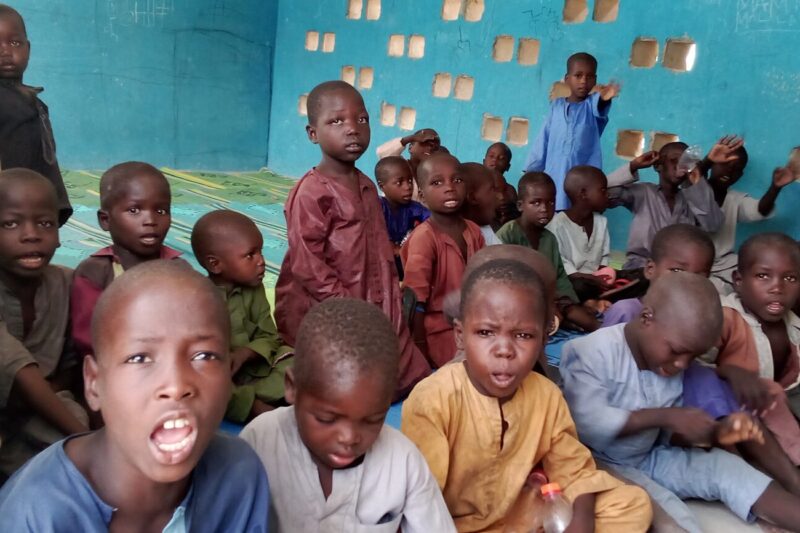A herd of roaming elephants – numbered by some to be as many as 250 – is disrupting farming in Rann, a town in northeast Nigeria close to the borders of Cameroon and Chad.
“The elephants trample over our crops and destroy our farmlands,” said Modu Mamman Tar.
Up until a decade ago hundreds of elephants – known as the savannah elephants – used to migrate through the region, usually arriving in Rann in the rainy season.
But the area became an extremist hotspot when members of the Jamā’at Ahl as-Sunnah lid-Da’wah wa’l-Jihād (JAS), commonly referred to as Boko Haram, set up headquarters in the Sambisa Forest, one of three major migration routes for the elephants.
JAS used the route to escape bombardment by the military and the constant conflicts between the soldiers and insurgents drove the elephants away. It was not clear what happened to the elephants or where they had been for the past 10 years.
Towards the end of 2019 they returned to the area much to the joy of conservationists. Even the farmers were not too concerned because their crops had already been harvested.
But last year and this year it has been a different story because the elephants had stayed in the area.
Tar told RNI that he and other farmers had not been able to work their lands properly because of the elephants.
“They destroy our farm produce which means we do not make any money. It is very worrisome that most farmers in Rann have still not started farming activities because they fear they will lose money again because of the elephants’ destruction,” Tar said.
When the elephants first returned many farmers left the area. Some went to neighbouring villages and others to Maiduguri to farm there.
Tar said the remaining farmers in Rann and the surrounding areas had lost two years of farm produce “which has led to starvation because our main source of livelihood is farming and rearing livestock”.
He said women in the area tried to do some petty trading and some of them sold firewood.
“But many have been left with nothing to put on their tables because of the destruction of harvest by the elephants.”
Adam Daima said before the elephants returned he was harvesting more than 100 bags of maize for sale and he even had some to store for his personal use.
“But, because of the roaming elephants, for two years I have not been left with a single bag,” he said.
He said he was disillusioned and would not try to farm this year because of the “terrible experience” he had.
Daima said the elephants were thought to have come “from somewhere around Cameroon”, adding that they normally came in the rainy season “but this time they have spent the whole year in Rann”.
Rann is the main town in the Kala Balge Local Government Area in Borno State and is about 150km from Maiduguri.
The World Food Programme (WFP) said in January last year that, apart from the roaming elephants, traders in Rann lacked capital, were food insecure and had difficulty in transporting goods during rainy season because of the bad roads.
Last year the Guardian quoted Babagana Shettima, a community leader in Kala-Balge, as saying the presence of the elephants had compounded misery in the district.
“The situation of the elephants here is very terrible, they are really destroying our farmlands,” he said. “People here are already suffering, they are living in the camps or in the bush, they have to farm to eat and this is the only source for their food. If the elephants destroy it, they will not have any food to eat.”







